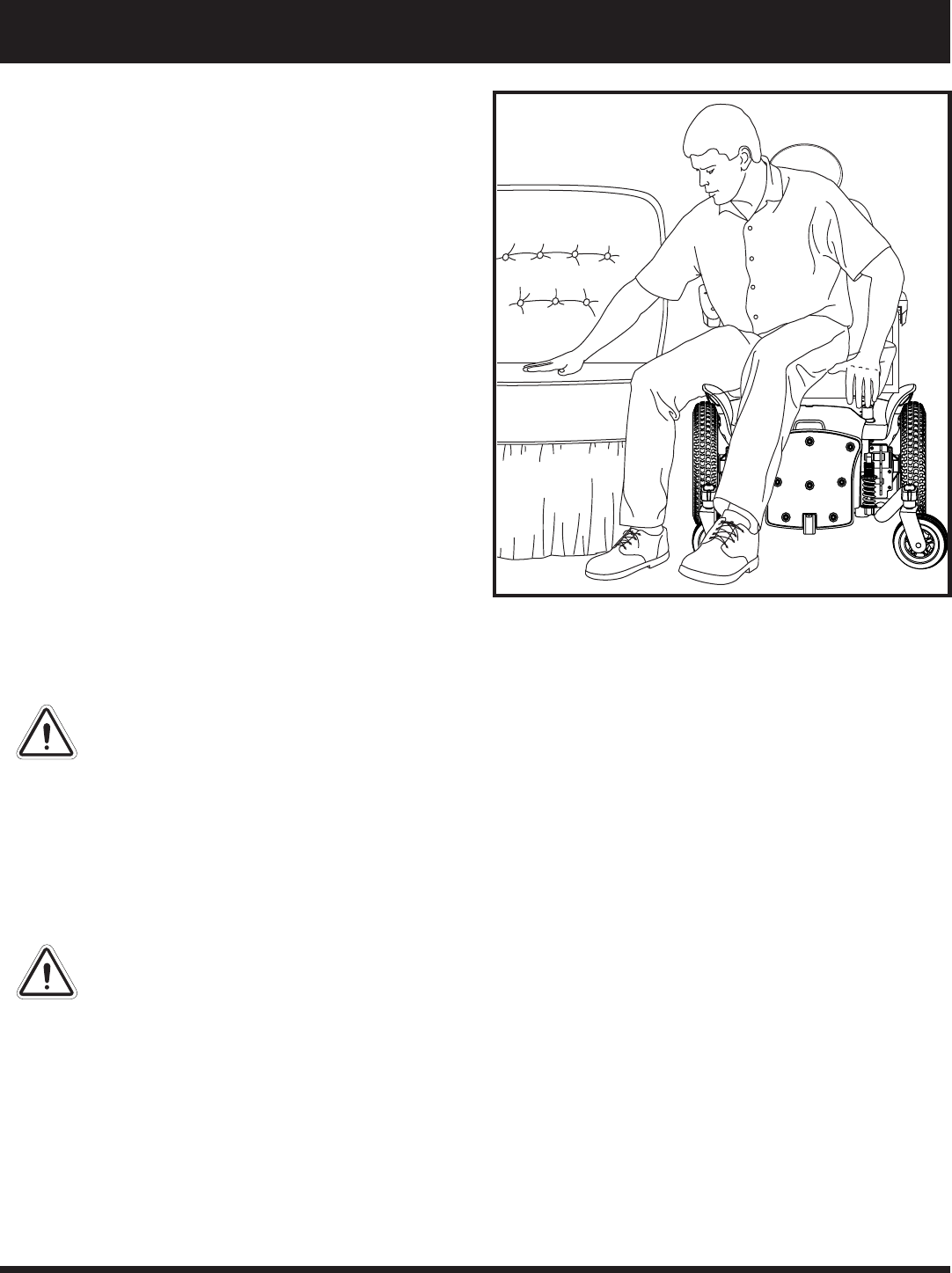
Jazzy 614 Series www.pridemobility.com 15
II. SAFETY
Figure 4. Ideal Transfer Position
Transfers
Transferring onto and off of your power chair requires a
good sense of balance. Always have an attendant or health-
care professional present while learning to properly transfer
yourself.
To eliminate the possibility of injury, Pride recommends that
you or a trained attendant perform the following tasks be-
fore attempting a transfer:
! Turn off the power to the controller.
! Ensure your power chair is not in freewheel mode. See
III. “Your Power Chair.”
! Turn the caster wheels toward the transfer destination
to improve power chair stability during transfer.
! Make sure both armrests are flipped up or removed
from your power chair.
! Flip up the foot platform or move the leg rests aside;
this will help to keep your feet from getting caught on
the front rigging during the transfer.
! Reduce the distance between your power chair and the
object you are transferring onto.
WARNING! Before transferring, position yourself as far back as possible in the power chair seat
to prevent the power chair from tipping forward during transfer.
WARNING! Avoid putting all of your weight on the power chair armrests and do not use the armrests
for weight bearing purposes, such as transfers. Such use may cause the power chair to tip, resulting
in a fall from the power chair and personal injury.
WARNING! Avoid putting all of your weight on the front riggings. Such use may cause the power
chair to tip.
Prescription Drugs/Physical Limitations
Users must exercise care and common sense when operating a power chair. This includes awareness of safety issues when
taking prescribed or over-the-counter drugs or when the user has specific physical limitations.
WARNING! Consult your physician if you are taking prescribed or over-the-counter medication or
if you have certain physical limitations. Some medications and limitations may impair your ability
to operate your power chair in a safe manner.
